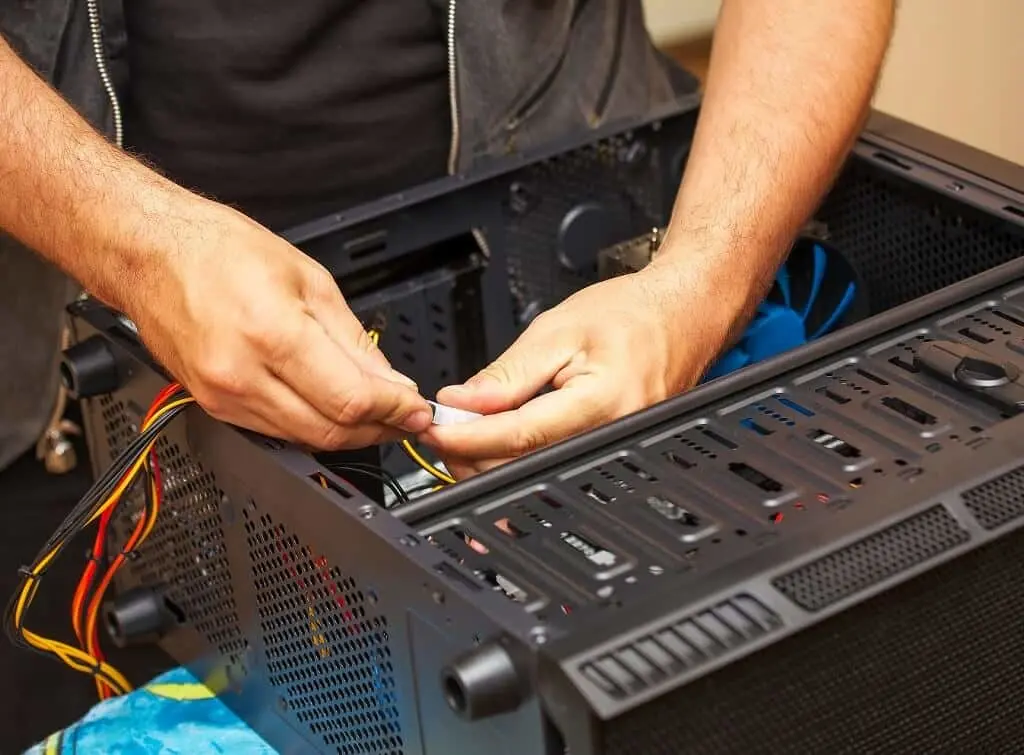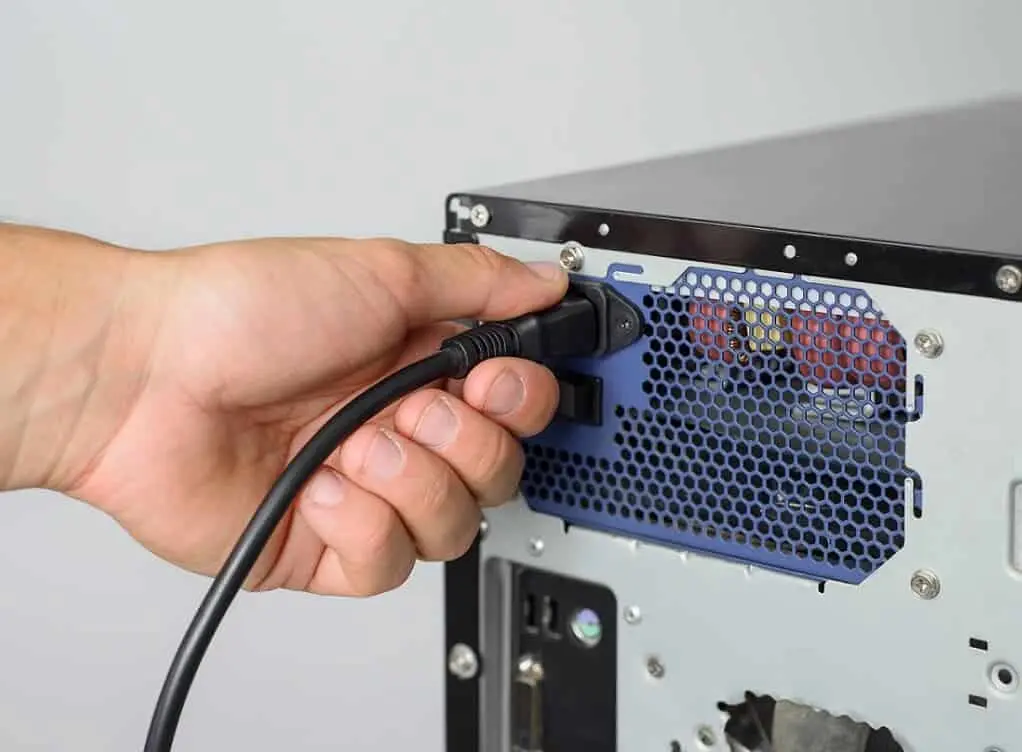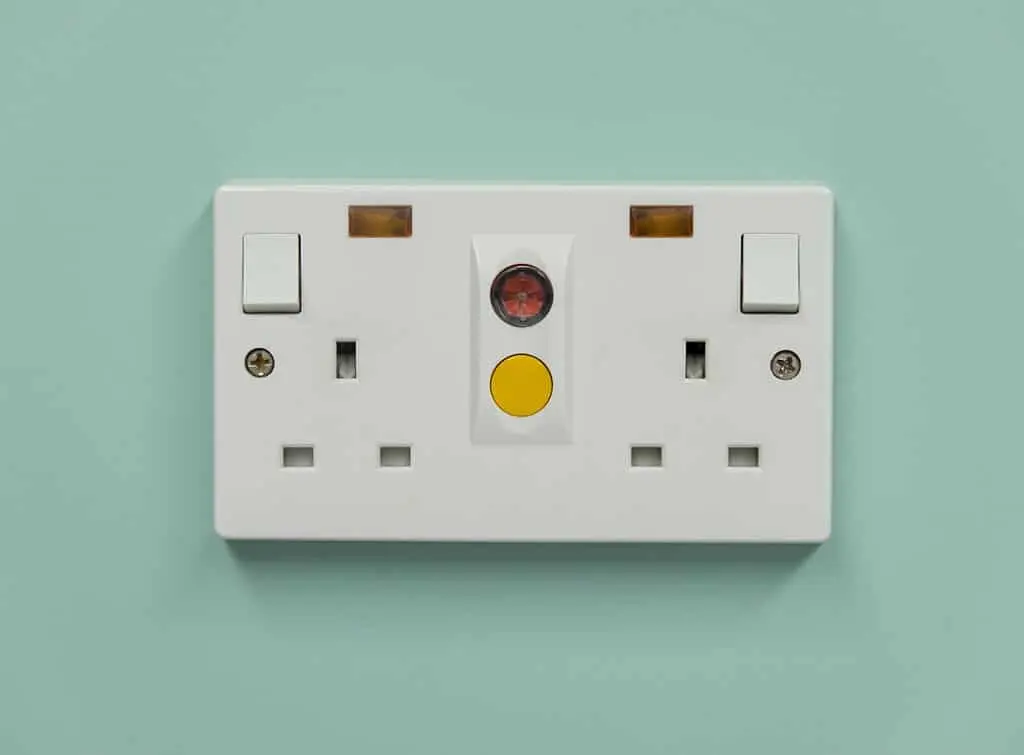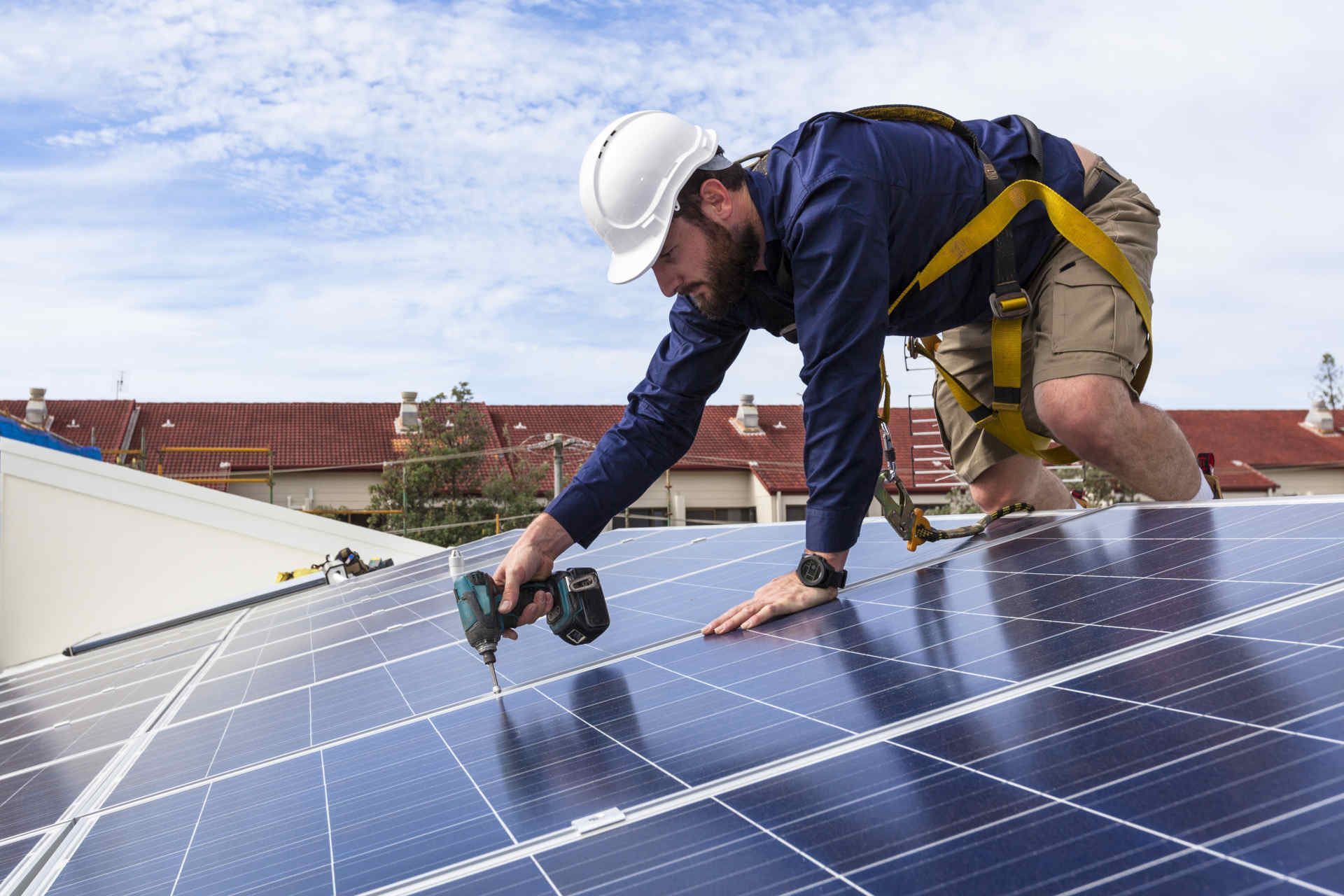Blog>Expert Advice>Is it safe to use a PC in an ungrounded plug?
Last updated: 24 October 2024
Is it safe to use a PC in an ungrounded plug?
Using a PC in an ungrounded plug socket has several risks. Read our expert advice to learn why you shouldn't use a socket without an earth connection and discover how to safely power your PC.

Can I plug a computer into an ungrounded outlet?
Plugging a computer into an ungrounded outlet is possible but dangerous. It is not safe to use a PC in an ungrounded plug and doing so can put your health, home and device at risk.
An earth connection is used to safely divert any surges in the electrical current into the ground. Current building regulations require all new electrical socket installations to be grounded (earthed).
Modern homes are built with grounded sockets as standard but ungrounded outlets can still be found in older properties with their original wiring.
Risks of using PC in an ungrounded plug
Whether you are using your computer for work, gaming or browsing the internet, you need your PC set up to be safe. Just because you can plug your computer into an ungrounded plug that doesn't mean that you should.
Storms can cause spikes in electricity and create a dangerous power surge inside your computer. A grounded socket will divert the excess current of electricity away from your PC and into the safety of the ground instead.
Faulty wires and computer components can also result in power fluctuations and potential damage.
Using a PC in an ungrounded plug has the following risks:
Electric shock - Electrical faults can cause a live current to surge inside the PC. Without an earth connection, this electricity will stay in the metal parts of your device and can cause an electric shock when touched
Computer damage - PCs have several metal components and electrical circuits inside the hardware. Using an ungrounded socket can cause power surges and lead to malfunctioning and damaged parts
Poor performance - Ungrounded sockets are unable to provide your PC with a stable electrical current. Fluctuations in power can result in unreliable and unsatisfactory performance
Fire hazard - Sockets without an earth connection are at risk of overheating. PCs require a constant flow of electricity and overheating parts can become a fire hazard
Using an ungrounded plug socket can also void your home insurance policy. It is recommended to always use a grounded socket for all electrical appliance to stay safe and compliant with current building regulations.
What can cause a socket to become ungrounded?
Computers are made up of several low voltage components. Ungrounded plug sockets can cause electricity spikes inside the computer and with nowhere else to go, this current can fry the delicate parts and circuits.
Hiring a professional to replace a computer's motherboard, hard drive and power supply unit can be expensive. Avoid putting your PC at risk of damage and plug your device into a grounded plug socket instead.
Plug sockets can be ungrounded for the following reasons:
Age - It has not always been a legal requirement for power sockets to include an earth connection. Older properties with their original wiring will likely have ungrounded outlets installed
Renovations - While building regulations require all new electrical installations to be grounded, sockets are sometimes left ungrounded during renovation work
Faulty connection - It is possible for a grounded socket to have a faulty earth connection. Incorrect installations, loose connections and damaged wires can lead to grounding issues
DIY installation - All electrical work should be completed by a competent person to comply with current building regulations. DIY plug socket installations may not be up to the required safety standards and be left ungrounded

What to do if a plug socket isn't grounded
Whether you are renovating or live in an older property, we recommend making sure all of your plug sockets are grounded. Installing grounded outlets will protect your PC from damage and also make your home building regulation compliant.
A qualified electrician can rewire your existing outlets to include an earth connection. You can choose to ground a single socket or rewire your entire property to meet safety regulations.
Here is a guide to grounding outlets without an existing earth connection:
Inspect and test the outlet
An electrician will first check the outlet to see if it is already grounded or not. Three-pronged plugs and sockets used in the UK typically include an earth connection but this is not always the case.
An electrician will look for the yellow and green earth wire in the system before doing anything else. A multimeter may also be used to confirm if the outlet needs grounding.
Install an earth wire
When grounding outlets without an earth connection, often all an electrician needs to do is add an earth wire to the existing system. A green and yellow earth cable will be installed into the outlet and connected to your property's main consumer unit (fuse box).
Properties with the old two-wire wiring system will need their electrical systems upgraded. It is recommended to rewire your entire property and not just a single ungrounded outlet to use for your PC.
Create an earth connection
Occasionally fitting a new earth wire to the main consumer unit isn't possible. In this situation an electrician may choose to use a grounding electrode to connect your outlet to the earth instead.
Grounding electrodes are placed into the ground outside of your property. The new earth wire runs from the outlet inside and connects to the grounding electrode. With this electrode installed, any surges in electrical current can be safely diverted into the ground.
Inspection
An electrician will perform a safety check after grounding outlets and rewiring your home. You will receive a certificate to prove the work complies with building regulations and meets current safety standards.
See the tradespeople we've checked and recommend for your job

Electrician costs
The following factors determine the cost of hiring an electrician to rewire your property:
Number of sockets in need of grounding
Safety tests needed - Landlords need new electrical installations to be professionally tested
Your location - tradespeople charge varying rates across the UK
Electricians in the UK charge an average of £25-£50 per hour. The average electrician day rate is £320 per day. We recommend asking an electrician for a full cost break down to find out if they charge by the hour or day.
It costs an average of£150 to have a single grounded socket installed in your home.Rewiringan entire 3 bedroom property costs between £4,450 - £8,000. This average fee increases to£7,500 - £12,500 for a 5 bedroom house.
Landlords will need new electrical installations to be inspected by a qualified electrician. An Electrical Installation Condition Report(EICR) is a legal requirement for rental properties and this inspection costs up to £375 for a 1 bedroom house.
Read our electrician cost guide for a closer look at current professional rates.
Key takeaways
Using a PC in an ungrounded plug is a safety hazard
Ungrounded computers can experience dangerous power surges and cause electric shocks
It is recommended to have ungrounded sockets earthed by a qualified electrician
Electricians charge an average rate of £25-£50 per hour
Search the Checkatrade directory to find vetted and approved electricians near you. Enter your postcode below to start browsing high quality tradespeople in your local area.
See the tradespeople we've checked and recommend for your job
See the tradespeople we've checked and recommend for your job


